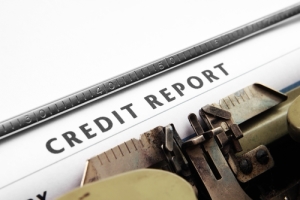It is understandable that people looking to file bankruptcy are concerned about the impact bankruptcy will have on their credit report. I get questions all the time like: “will bankruptcy ruin my credit forever?”, or “will my credit score go to zero if I file bankruptcy?”.
Fortunately, bankruptcy does not destroy your credit forever. In fact, by discharging your unsecured debt a bankruptcy may in fact help improve your credit rating and credit ability. A big part of your credit is your debt to income ratio. The more debt you have, the bigger a risk you are for a lender. If your are able to wipe out a significant amount of unsecured debt in a chapter 7 or chapter 13 bankruptcy that will help improve your debt to income ratio immediately.
The exact impact of a bankruptcy on your credit score will depend on your specific situation. Everybody’s credit report and score will be different. If you are current on all of your debt at the time you file bankruptcy, your score will definitely take a hit. The bright line for these people is that their credit score may rebound fairly quickly if bankruptcy is the only negative mark on their report. Some of my clients however are significantly behind on their debts. They may have collections, judgments and several past due notations on their reports. For these clients, bankruptcy can help put a stop on further damage to their credit, and allow them to get a fresh start and rebuild.
How long the bankruptcy will be listed on a credit report depends on which chapter of bankruptcy is filed. If a debtor files a chapter 7 bankruptcy it will show on their credit report for 10 years. If a chapter 13 bankruptcy is filed, it will show on a credit report for 7 years. Both of these time-frames are based on when the bankruptcy is filed. So, as far as credit reporting, a chapter 13 has an advantage over chapter 7.
Keep in mind that just because a bankruptcy is on your credit report doesn’t mean you can’t get credit during that time. As a general rule your credit should be in much better shape in approximately 18 months to 2 years after you file. At that time (assuming you aren’t in more, post-filing debt) you should be able to secure a good loan for things like cars, etc with a good interest rate. Some of my clients have even been able to purchase a home 2 years after the bankruptcy is over. It is a bit more common to get a home loan around 4 years after filing.
For rebuilding credit after bankruptcy it is important to remain current on all of your payments (home, car, insurance, etc). If you do get a credit card after bankruptcy make sure that it has a small limit to avoid overcharging. Also, make sure that if you use it to pay it off at the end of each month.
The bottom line is that bankruptcy does not destroy your credit. In many cases it can drastically improve it. Also, each situation is different, so if you are thinking about bankruptcy, and worried about how it will impact your credit, you should speak to an experienced bankruptcy attorney. Our office always offers free initial bankruptcy consultations and we can discuss how a bankruptcy may affect your credit.

